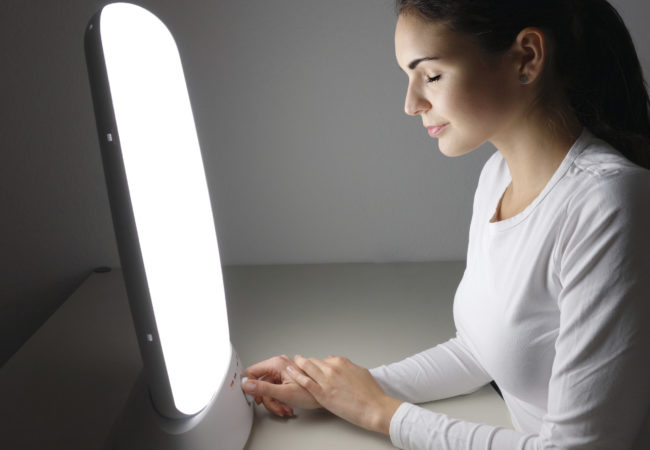Source: Thailand Medical News Feb 04, 2020 6 years, 3 weeks, 2 days, 16 hours, 29 minutes ago
Photo therapy or
light therapy, consisting of daily exposure to bright, artificial light, is already a recognized line of treatment for people affected by seasonal and nonseasonal depressive disorder.(also known as seasonal affective disorder or SAD)

However till now, not much was known about the potential benefits of
light therapy for people with
bipolar disorder, one of the leading causes of disability worldwide.
A recent meta-analysis recently published in the
Canadian Journal of Psychiatry, by Dr. Raymond Lam, a Professor in the department of psychiatry, director of the Mood Disorders Centre at the Djavad Mowafaghian Centre for Brain Health, and research scientist at the Vancouver Coastal Health Research Institute, took a closer look at the growing body of research in this area.
Dr Lam and his colleagues found that, when it comes to reducing symptoms of
bipolar depression,
light therapy holds promise.
The researchers found seven published trials of
light therapy compared to a placebo in people with
bipolar depression. When they statistically combined the results of the studies, overall, there was significant improvement in depressive symptoms with bright light compared to placebo conditions.
They also found that bright light was well tolerated in the studies, with few people having to stop the study for side effects or other reasons. Importantly,
light therapy did not cause a switch from depression to mania, as can happen with antidepressants in people with
bipolar disorder.
It is not known exactly how
light therapy works for seasonal and nonseasonal depression, and whether it is the same mechanism for
bipolar depression.
However what is known is that light acts through the eyes to regulate the biological clock located in a tiny region of the brain, known as the suprachiasmatic nucleus. It is also known that there are disturbances in the biological clock that affect circadian (daily) rhythms in people with
bipolar disorder, including hormonal rhythms, sleep, cognition, and other behaviors. However, it is not known if regulating circadian rhythms is the reason why
light therapy works as an antidepressant.
Past studies have shown that light can affect the major neurotransmitters, or chemical messengers, involved in mood and behavior, such as serotonin and dopamine. So,
light therapy may work similarly to antidepressants by directly acting on these neurotransmitters.
There are fewer available treatments for
bipolar depression compared to other types of depression, so it is important to find new effective treatments. Antidepressant medications are not clearly effective and they may worsen mood cycling in people with
bipolar disorder. Also, many people with
bipolar disorder must take other medications such as mood
stabilizers. That's why it is important to determine if a non-m
edication treatment, like
light therapy, is effective, because it can be used without worrying about drug interactions.
Although the researchers found positive results, they also found limitations in the previous studies. For example, only small numbers of people were studied, there were many different types and "doses" of
light therapy used, the follow-up periods were very short, and most patients were taking other medications for
bipolar disorder.
Dr Lam told
Thailand Medical News, “That's why moving forward, we need more research with larger samples of patients to conclusively show that
light therapy is effective for
bipolar depression. We also need to determine the optimal conditions for
light therapy, including what wavelength of light works best, how bright the light needs to be, and how long patients should use the light.”
He also told Thailand
Medical News that, “Since
bipolar disorder is a chronic condition, we also need to further examine how light should be used for maintenance treatment to prevent future depressive episodes.”
Reference : Raymond W. Lam et al. Light Therapy for Patients With Bipolar Depression: Systematic Review and Meta-Analysis of Randomized Controlled Trials,
The Canadian Journal of Psychiatry (2019).
DOI: 10.1177/0706743719892471
